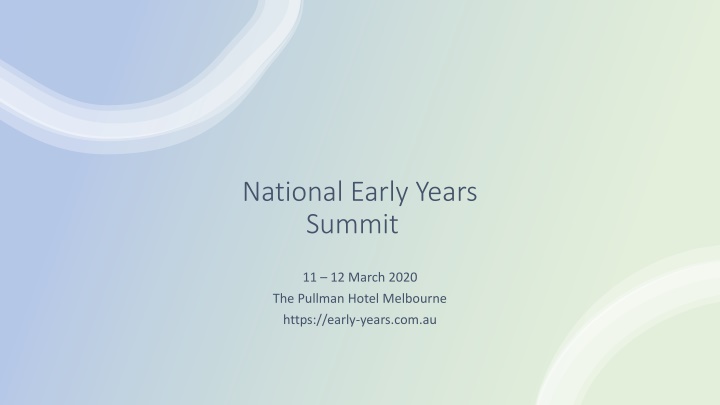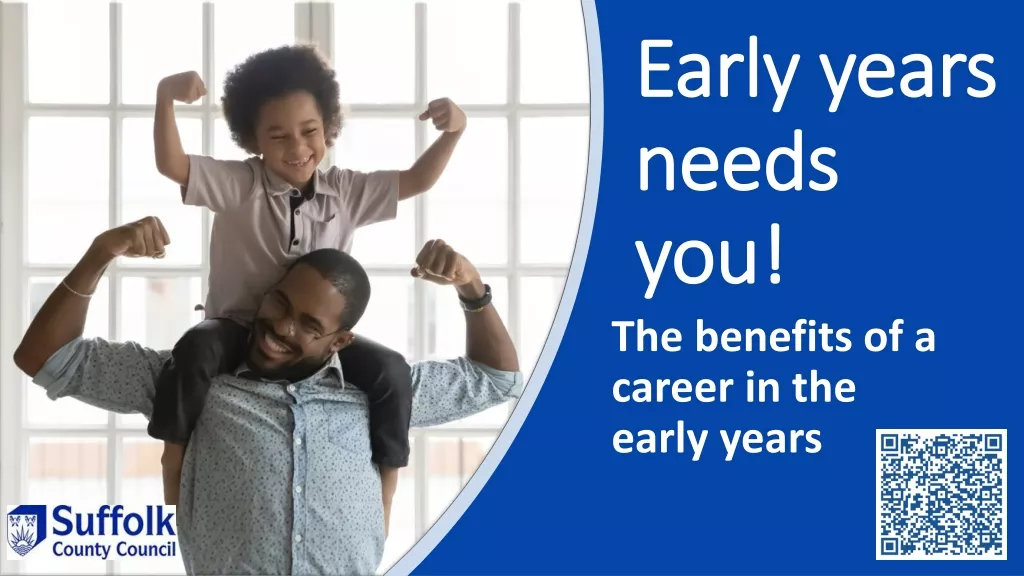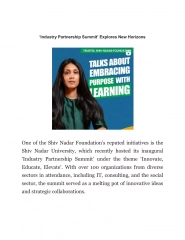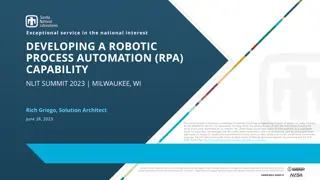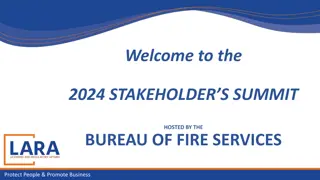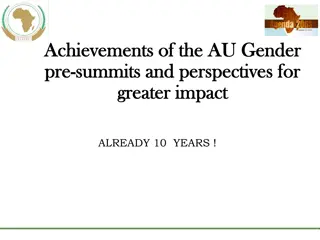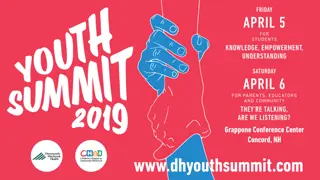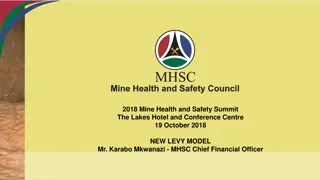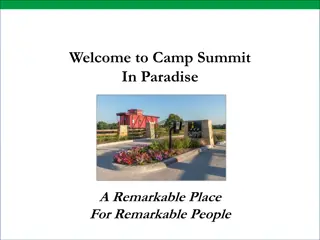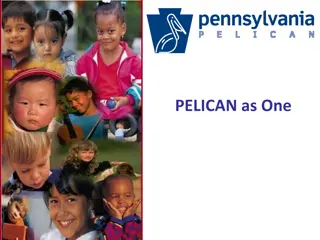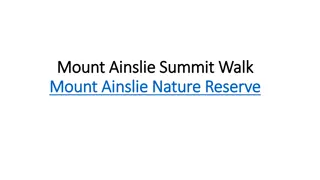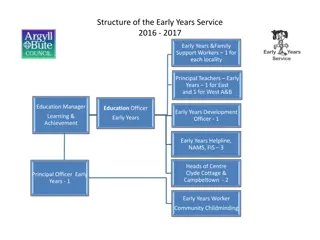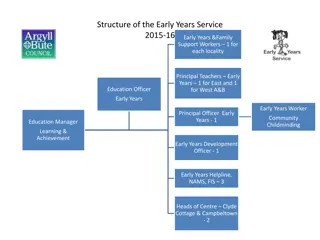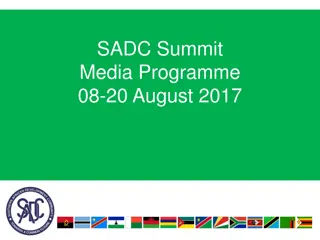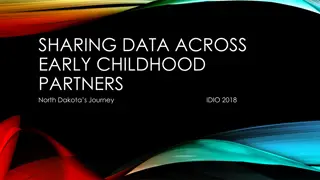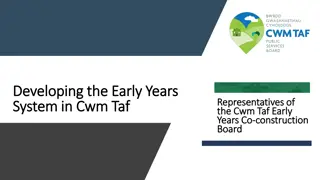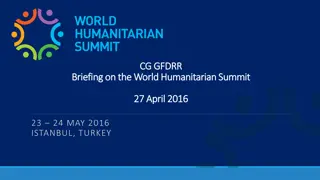National Early Years Summit Highlights and Insights
The National Early Years Summit held on 11-12 March 2020 in Melbourne brought together experts and professionals to discuss improving outcomes for Australian children. Key topics included addressing inequalities, advocating for children with disabilities, and creating supportive home environments. The summit emphasized the importance of a child-centric approach, blueprint development, and integrating passion and moral outrage to drive positive change in early childhood development.
Download Presentation

Please find below an Image/Link to download the presentation.
The content on the website is provided AS IS for your information and personal use only. It may not be sold, licensed, or shared on other websites without obtaining consent from the author.If you encounter any issues during the download, it is possible that the publisher has removed the file from their server.
You are allowed to download the files provided on this website for personal or commercial use, subject to the condition that they are used lawfully. All files are the property of their respective owners.
The content on the website is provided AS IS for your information and personal use only. It may not be sold, licensed, or shared on other websites without obtaining consent from the author.
E N D
Presentation Transcript
National Early Years Summit 11 12 March 2020 The Pullman Hotel Melbourne https://early-years.com.au
Intended impact By 2030 more Australian children will thrive in the first 1000 of their lives and beyond
Day 1 morning panel What is working for children that we need to do more of? Address the inequality of access for all children (Prof Sharon Goldfeld) Ensure children with disability have equitable access to the NDIS (Kerry Bull) Early education needs to be planned, purposeful and playful with education to be regular and systematic (Sue Robb) A home environment that is secure, providing education and support for parents too (Jane Fisher) Ensure our system recognises and reflects all views (western and indigenous) (Alison Wunungmurra) In summary, programs work when they come from a children s space not a work space
Day 1 afternoon panel: If I wrote the blueprint, it would say The blueprint needs to be: Population-based: progressive, not stigmatised, supports where families are (Prof Daryl Higgins) Prevention-focused: consider risk factors, look at history and parents early needs, provide hand in hand platform (Prof Daryl Higgins) Partnership-based: trusted relationships, regular engagement (Prof Daryl Higgins) Practice-aligned: work in a different space (Prof Daryl Higgins) Provide a system that supports First Nation people, listen to First Nation advocates (Lisa Thorpe) Question the quality of policies in place (Peter DeNatris) Consider what families need to thrive (Peter DeNatris) A business and social purpose to drive system change (Michael Traill)
Day 2 Morning Panel: Whats missing from the Blueprint PASSION! We need more moral outrage, more anger (Richard Weston) Make children visible (Richard Weston) Bring a transformative vision (Kristy Nolan) Growth pathway must start with children (Tony Stuart) No Human Rights Statement in the Blueprint Need integration of mental health and diversity in Blueprint Blueprint needs to empower people Make this everyone s business
Day 2 Afternoon panel: Blueprint 2.0 What has come out of the summit? Outrage that children are not protected Provide enabling infrastructures Include First Nations narratives rich conversations but little action Data as a powerful tool Family-centred practice is the best form of support We need to lead change and show the government what we CAN DO This is a summary of points from Kerry Graham, Terri Soller, Penny Deakin, Sue West, Dr Brian Babington, Maria Stuart, Dr Barb Vernon, Professor Jeanette Milgrom AM
